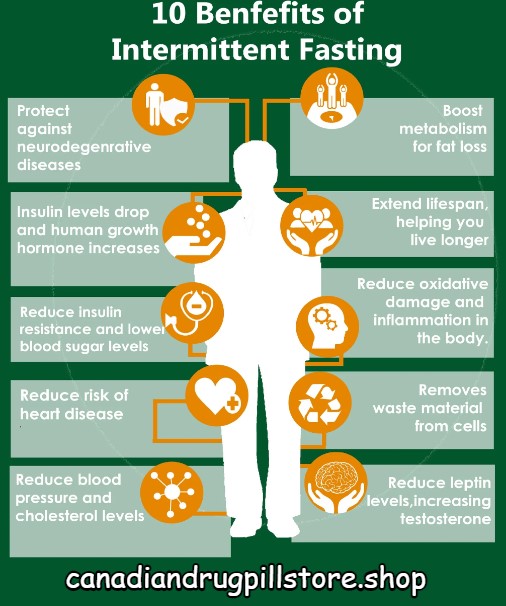The Power of Intermittent Fasting and Testosterone
Welcome to the ultimate guide on unlocking the power of intermittent fasting and testosterone! If you're curious about how these two factors can supercharge your health and fitness journey, you're in the right place. Let's dive in!
Intermittent fasting and testosterone have garnered significant attention in the realm of health and fitness, with enthusiasts and researchers alike exploring the potential links between the two. Intermittent fasting and testosterone, when combined, have been speculated to offer various benefits, ranging from improved hormone balance to enhanced muscle growth and fat loss.
Intermittent fasting, characterized by alternating periods of eating and fasting, has been shown to impact hormone levels in the body, including testosterone. Research suggests that intermittent fasting may lead to an increase in testosterone levels, especially during the fasting period. This temporary boost in testosterone can have positive implications for muscle building and overall physical performance.
Moreover, intermittent fasting has been associated with improvements in insulin sensitivity and blood sugar regulation, both of which are closely linked to testosterone production. By optimizing insulin levels, intermittent fasting may indirectly support healthy testosterone levels, further enhancing its potential benefits for body composition and performance.
While intermittent fasting may offer potential benefits for testosterone levels, it's essential to approach fasting with caution, especially for individuals with existing hormonal imbalances or medical conditions. Intermittent fasting should be implemented gradually and tailored to individual needs and preferences to avoid potential negative effects on hormone levels and overall health.
Furthermore, the relationship between intermittent fasting and testosterone is complex and multifaceted, with various factors influencing the outcomes. Factors such as diet composition, exercise regimen, sleep quality, and stress levels can all impact testosterone levels and may interact with intermittent fasting in different ways. It's crucial to consider these factors holistically when incorporating intermittent fasting into your lifestyle.
In addition to its potential effects on testosterone levels, intermittent fasting has been praised for its ability to promote weight loss, improve metabolic health, and enhance longevity. By incorporating periods of fasting into your routine, you may experience benefits beyond testosterone modulation, including enhanced cognitive function, increased energy levels, and reduced inflammation.
for more type of diets, you can read 10 Best Evidence Based Diets for Optimal Health and Longevity
Understanding Intermittent Fasting
Before we explore the dynamic relationship between intermittent fasting and testosterone, let's break down what intermittent fasting is all about. Intermittent fasting involves cycling between periods of eating and fasting, and it's gained popularity for its potential health benefits.
The Role of Testosterone
Now, let's talk about testosterone – the hormone that plays a crucial role in muscle growth, fat loss, and overall vitality. Testosterone isn't just for men; women also produce testosterone, albeit in smaller amounts. It's a key player in optimizing health and fitness performance.
How Intermittent Fasting Impacts Testosterone
- Boosting Testosterone Levels: Research suggests that intermittent fasting can lead to temporary increases in testosterone levels, especially during fasting periods. This boost in testosterone can support muscle building and enhance physical performance.
- Improving Insulin Sensitivity: Intermittent fasting has been shown to improve insulin sensitivity, which can indirectly benefit testosterone production. By regulating insulin levels, intermittent fasting may help optimize hormone balance in the body.
- Enhancing Fat Loss: Intermittent fasting promotes fat loss by tapping into stored fat for energy during fasting periods. As fat loss progresses, testosterone levels may increase, further supporting a leaner physique.
FAQ (Frequently Asked Questions)
Conclusion
In conclusion, Intermittent fasting and testosterone form a powerful duo that can elevate your health and fitness journey to new heights. By incorporating intermittent fasting into your lifestyle and optimizing testosterone levels, you can unlock a myriad of benefits, including enhanced muscle growth, improved fat loss, and overall vitality. Remember to approach fasting and hormone optimization with mindfulness and consult with a healthcare professional if you have any concerns. Here's to harnessing the power of intermittent fasting and testosterone for a healthier.
While the relationship between intermittent fasting and testosterone is still being explored, emerging research suggests that intermittent fasting may offer potential benefits for testosterone levels, muscle growth, and overall health. However, it's essential to approach fasting with caution and consider individual factors when incorporating it into your lifestyle. By understanding the connection between intermittent fasting and testosterone and adopting a balanced approach, you can unlock the potential benefits of both for optimal health and well-being, happier you!


